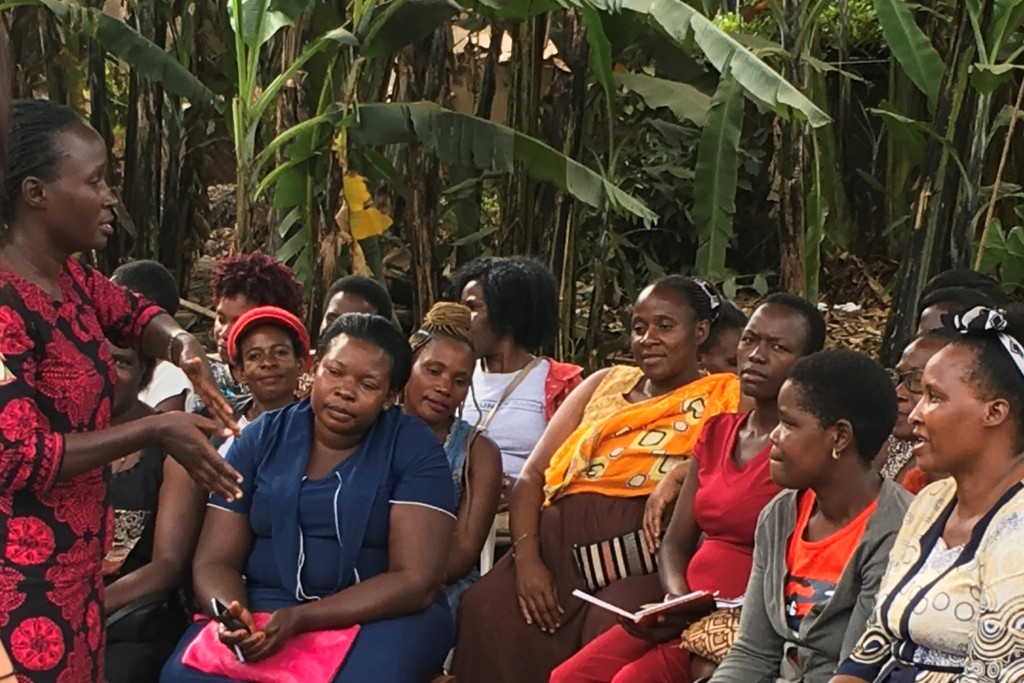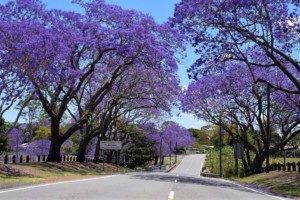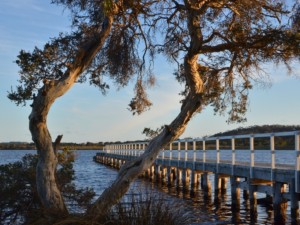Good news in tourism January 5 – 11, 2020

Welcome to The “Good Tourism” Blog’s weekly reminder — if you need it — that as a tourism stakeholder YOU are NOT bad! You are probably pretty good, actually; one of the many tourism industry people or travellers doing what you know to be good while knowing there is more to know to be better. Published on Sunday to be ready on Monday, “Good news in tourism” is the perfect pick-me-up for the start of a working week — or week off.
Important “GT” stuff first in case you missed it during the week:
Community consultation in Kahangi village, Uganda uncovered traditional & modern solutions to an old problem; the conflict between us Homo sapiens and wildlife. And community-based tourism plays a huge part. Thanks to James Nadiope of Africa Sustainable Tourism Care Foundation and “Good Tourism” Insight Partner Second Look Worldwide for the wonderful “GT” Insight.
Sapiens means ‘wise’ in Latin. And we should be wise enough to know that we know very little, even as we do the best we can on this Earth. And that’s really the main point of “GT’s” travel philosophy for the new decade: It’s not ‘no’. It’s ‘know’. And no-one should be shamed out of pursuing their travel dreams. If you like it, please share it.
Professor Susanne Becken of Griffith University in Australia, a “GT” Friend who wrote the very first “GT” Insight back in May 2017, has been recognised for her contribution to sustainable tourism as the 16th recipient of the UNWTO Ulysses Prize. The UNWTO awards the Ulysses Prize annually for outstanding contributions to innovation and knowledge in tourism.
Other good news in tourism, in no particular order:
A timely article by academics in Australia: “Volunteer tourism won’t work everywhere, but where conditions are right, international visitors can speed rather than slow recovery” after a natural disaster. “It is important that the process be controlled locally and that the invitation from locals be genuine. It is also important that volunteer tourists be prepared to engage in work that mainstream tourists would not.”
Tourism & indigenous culture
The World Tourism Association for Culture & Heritage (WTACH), a “GT” Insight Partner, has congratulated the indigenous people of the Gascoyne region of Western Australia on the re-opening of Gwoonwardu Mia — the Gascoyne Aboriginal Heritage & Cultural Centre located in Carnarvon.
WTACH boss Chris Flynn said: “Gwoonwardu Mia recognises and celebrates the Aboriginal cultures of the five language groups of the Gascoyne region. The sharing of authentic stories by the local aboriginal people will go a very long way to ensuring they are kept alive not just in their culture but in the hearts and minds of visitors from all over the world.”
Cherokee Nation Cultural Tourism Director Travis Owens, upon announcing an expanded line-up of cultural and educational opportunities at the Cherokee National History Museum, said: “We are always looking for new and exciting ways to share our story with the world.” New programming at the attraction includes “make-and-take activities, artist demonstrations, story time and more”. The Cherokee Nation is a “sovereign tribal government” based in Tahlequah, Oklahoma, USA.
Tourism under central control
2020 is China’s “target year to eradicate absolute poverty”. And “solid progress” was made thanks to culture and tourism in 2019, according to the Ministry of … Culture … and … Tourism. The Ministry funded “cultural activity facilities in poor villages” and brought Chinese opera to the countryside to “enrich villagers’ lives”. Hmm.
New Zealand’s NZD 35 per pax tax has raised more than NZD 36 million (USD 24 million) since it was introduced in July 2019. The Aotearoa government is soon expected to unveil its first plan for spending and/or investing funds collected by the International Visitor Conservation and Tourism Levy.
Ukraine’s government plans to spend UAH 240 million (USD 10 million) on developing the nation’s tourism potential in 2020, a budget 10 times larger than last year. Leading the effort will be a new tourism development agency. More than double that (UAH 500 million) will be spent on promoting educational travel for school children within the country.
Israel’s Aliyah and Integration Minister Yariv Levin reckons tourism is “catching on as a central element of the Israeli economy” having generated billions of shekels and thousands of jobs.
Nature-based tourism, education tourism, and farm tourism will be three of the 10 tourism product categories to receive dedicated campaign budgets under the Philippines’ National Tourism Development Plan.
Nature-based tourism & ecotourism
Mr Nadiope, who wrote the fabulous “GT” Insight linked above, has a natural ally in Lilly Ajarova, CEO of Uganda Tourism. The travel & tourism industry in that east African nation is learning that it cannot succeed unless local communities are included. It’s all about incentives.
Ms Ajarova is quoted: “When the community is going to cut down the forest that has an endangered species, how do you convince them that it is more valuable to keep that land forested than to cut it and grow rice or maize or potatoes? […] If you’re going to do conservation just for the sake of it, people will not appreciate it. […] I always use ecotourism as the means by which we could get people involved in conservation because they will see the economic value.”
Costa Rica’s Minister of Tourism María Amalia Revelo tells TravelPulse how the central American republic is integrating its United Nations “Champions of the Earth” eco-credentials with an “Only the Essentials” long-staying, high-yielding tourism strategy.
The Mayor of Lapu-Lapu City in Cebu province, Philippines, Junard Chan, wants to develop ecotourism on Olango Island, which is to Lapu-Lapu’s east. The Olango Island Wildlife Sanctuary is an important stop for migratory birds.
An effort to bring more jobs and tourism dollars into the Black Belt region of Alabama, USA, is looking closely at ecotourism, including birding. Dr Ansel Payne, boss of Alabama Audubon, a conservation organisation, said birding was a multi-million dollar industry across the US but is largely untapped in Alabama.
There are 2,000 eco-lodges active across Iran compared to 400 in 2013, according to Behrouz Omrani, Director of the Research Institute for Cultural Heritage and Tourism.
A delicious blend of ecotourism, artisan markets, mariculture, and the locavore (local food) movement will launch this spring on the Outer Banks of North Carolina, USA.
The Principal Chief Conservator of Forest, Head of Forest, and Principal Secretary of the Government of Arunachal Pradesh state, India, Manmohan Singh Negi, has declared the D Ering Wildlife Sanctuary as having great tourism potential. That must be good news, eh?
Reflecting on a good year for Scotland’s nature reserves and related tourism, Scottish National Heritage’s Head of Nature Reserves, Stuart MacQuarrie, said: “Scotland’s national nature reserves are special places for wildlife. But they are also wonderful spots to visit, enjoy a spectacular view and catch sight of an elusive otter or amazing eagle.”
An ecotourism association has been established in Azerbaijan, called the Azerbaijan Ecotourism Association (AETA).
Sharkophile tells us why a live shark is more valuable than its fins to us Earthlings. And — surprise! — it has something to do with ecotourism.
Odds & ends
Newsy bits that don’t easily fit into this week’s arbitrary clusters:
Arctic tourism stakeholders have contributed to a report on the “knowledge gaps and research needed to support responsible tourism management […] at a time of increased interest in Arctic tourism”. The report is based on a workshop that took place in Longyearbyen, Svalbard, Norway.
An electric vehicle tour operator, which already operates in five states in India — Goa, Puducherry, Karnataka, Rajasthan and Gujarat — has rolled out new tours in Kerala in collaboration with the state government and partner hotels. Presumably due to its green credentials the startup, B:Live, has found it relatively easy to forge partnerships with tourism departments and major hospitality chains and plans to soon expand beyond India into Southeast Asia.
In Turkey the General Directorate of TCDD Transportation, the General Directorate of TCDD and the Medical Tourism Association signed a “Barrier-Free Transport, Barrier-Free Tourism and Barrier-Free Life Project” protocol. TCDD is the State Railways of the Republic of Turkey.
In 2020 the Guam Visitors Bureau has resolved to “support initiatives that will improve our overall quality of life and the future of tourism” on the Micronesian island territory of the USA. “We will stand firm about protecting our environment and natural resources, promoting island beautification, and instilling respect for our island and its people.”
In a unanimous decision, Harris County Commissioners Court in Harris County, Texas, USA has supported the formation of an African American Cultural Heritage Commission to serve as an advisory board for the identification, recognition, and preservation of African American cultural heritage. Advocates for the commission have proposed cultural tourism as a potential source of funding.
Authorities on the island of Bali in Indonesia are starting to take more seriously a “less is more” approach so as to guard against an economic over-reliance on mass tourism.
While Bali worries about too much tourism, Greater Keene Chamber of Commerce board members want to see more tourism in the Monadnock region of New Hampshire, USA. And not only for commerce. They say the viability of their region is at stake because of a “demographic time bomb”.
Cassidy Randall reckons travel is worth the carbon footprint: “So when I was sitting in the Reykjavik airport in Iceland on the way home and saw an article from The Atlantic pop up in my feed about how the best thing we can all do to combat climate change is stop traveling, I couldn’t help but feel irked. […] The piece was authored by an established travel writer who’s already gotten to see the world, and it was essentially telling people that they should feel guilty for doing the same. Frankly, it pissed me off.”
No-one should be shamed out of pursuing their travel dreams. It’s not ‘no’. It’s ‘know’.
Featured image: Community-based tourism entrepreneurship training near Kibale National Park in Uganda. Image supplied by James Nadiope for his “GT” Insight “How bees, trees, & tourism reduce human-wildlife conflict in Uganda”.
PS: None of the items above have been fact-checked by “GT”. All terminology used here is as the linked sources use it according the knowledge and assumptions they have about it. Please comment below if you know there has been buzzword-washing or blatant nonsense relayed here, but be nice about it as the linked sources might get offended. (“GT” won’t). And as for “GT” bringing it to your attention so that you might set the record straight, you are welcome! 🙂
PPS: It is “GT’s” policy to fully disclose sponsored content. If an item is not disclosed as sponsored then it will have caught “GT’s” attention by some other more organic means. Partner with “GT”. You know you want to.





